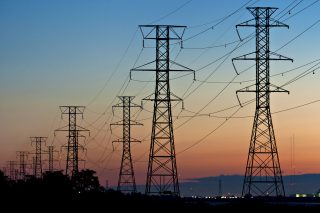In the last 10 years, severe power cuts in South Africa have caused several companies to shut down, leading to a decline in economic activities. However, recently, the country’s state-owned utility, Eskom, announced an end to its power cuts.
According to a report by Reuters, the company announced an end to its power cuts earlier than planned, on 5th instead of the 6th of January 2020, saying it has replenished water levels at its pumped storage facilities and conserved diesel at its open-cycle gas turbines.
Ending power cuts would cause closed businesses to reopen and create employment opportunities causing a positive impact on South Africa’s economy. This new state of affairs can be sustained if Eskom properly manages its outputs and facilities. But the company has said that the country may experience further power cuts if things do not go as well as expected.
“Should there be a significant shift in plant performance and an increase in unplanned breakdowns, load-shedding could be implemented at short notice,” reads a statement by Eskom.
Energy crisis in South Africa actively began in 2007 with different levels of power cuts after its coal-fired national grids experienced recurrent breakdowns in its generating capacity making Eskom struggle to deliver electricity.
In December 2019, heavy rain and flooding triggered failures at its Medupi coal-fired plant which led to a decline of 6,000 megawatts (MW) of power consumption from the national grid. However, Eskom executives have blamed the breakdowns on a lack of critical mid-life maintenance at older plants, and design flaws on the mammoth Medupi and Kusile projects.
The power cuts have led to either slow production and the shut down of businesses across the country, especially mining companies. In December, mining companies like Harmony Gold, Impala Platinum and Sibanye-Stillwater all said that they had been forced to cut production because of power shortages.
Impala Platinum (Implats) shut down operations at its Rustenberg and Marula mines due to extreme power cuts in December 2019 as the severe energy crisis left it running at 20 to30 percent of normal power generated by the country’s grid only for the maintenance of its essential facilities. The power cut posed itself a catalyst for mass unemployments as the mining company shut down operations.
Impala as a leading producer of platinum group metals (PGMs) has total attributable resources of 133.8 million ounces of platinum and employed 40,000 people in South Africa. The country supplied 85 percent of the world’s platinum and 30 percent of palladium, making it the largest producer, globally.
In January and February of 2008, global platinum and palladium prices scaled as mines were first shut down and subsequently restricted in their electricity use. Mining companies estimate that hundreds of thousands of ounces of both gold and platinum production will be lost every year until the crisis passes.
An end to power cuts will positively impact the economic growth of the country, reducing the cost of production for platinum and palladium, and consequently impact its currency positively. It will also improve the country’s standard of living as it would encourage the use of technology.








